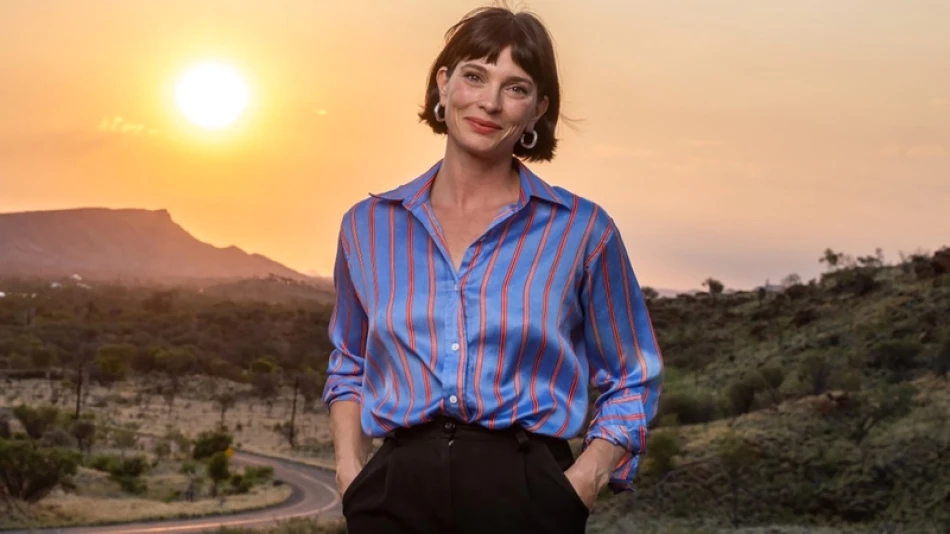
Clashing Cultures: Indigenous Australians and Settlers Struggle in the Town of 'Alice'
Alice Springs, the remote Australian town that once symbolized hope for a million British migrants in the 1950s, has become a flashpoint for racial tension. Now a 37-year-old lawyer who escaped the town's troubles years ago has returned as mayor, determined to heal a community where Indigenous Australians make up 90% of prisoners and shops have turned into fortresses.
The town gained fame through the bestselling novel "A Town Like Alice," which painted an idyllic picture of outback life that drew war-weary Britons to Australia. But 75 years later, Alice Springs faces deep racial divisions and rising youth crime that prompted the previous mayor to call for military intervention.
Asta Hill was elected mayor eight weeks ago, bringing an unusual background to the job. Born to what she calls "outcast" parents - a Danish mother and English father - she grew up in the small village of Mutitjulu, where her parents ran the only store as the sole white residents. When the family moved to Alice Springs, Hill couldn't wait to leave. "I couldn't get out of here fast enough," she says.
Hill built an impressive legal career after escaping Alice Springs. She trained as a lawyer, became a judge's assistant, and worked at the International Criminal Tribunal for former Yugoslavia, helping prosecute Bosnian Serb leader Radovan Karadzic for genocide. She later practiced human rights law in Johannesburg before moving to New York for a master's degree at Vanderbilt University on a prestigious scholarship.
A family tragedy brought her back. Her 23-year-old brother Rawly, a musician, drowned while kayaking in the town's river. Devastated, Hill returned from New York to the family home. That was 10 years ago.
Since returning to Alice Springs, Hill worked as both a prosecutor and defense lawyer, often representing the town's most vulnerable residents. She sometimes felt "complicit" in a justice system that imprisons people at nearly nine times the rate of England and Wales, with Indigenous Australians making up the vast majority of inmates.
The previous mayor, an electrician, oversaw consecutive night curfews as youth crime surged and even called for Australian military assistance. Hill's plans don't differ dramatically, but her approach does. She wants to create a large, safe, air-conditioned public library where young people and anyone feeling bored can spend time. She plans to keep the public swimming pool open at night with reduced entry fees.
Hill also wants to reduce the intimidating security cameras and surveillance equipment that fill the town. Her goal is to revive Alice Springs' reputation and bring life back to its shuttered businesses while providing shelter for the community's most marginalized residents.
The challenge is significant. Alice Springs sits at the center of Australia's ongoing struggle with Indigenous disadvantage and racial inequality. Hill's international legal experience with war crimes and human rights may prove valuable in addressing problems that have persisted for decades in this remote town that once promised so much hope.
Most Viewed News

 Sara Khaled
Sara Khaled






